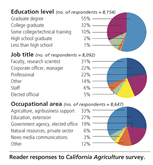
| FINANCIAL ANALYSIS & MODELING |
| TURNAROUNDS & WORKOUTS |
| MARKET & BUSINESS RESEARCH |
| MARKETING & SALES MANAGEMENT |
| TRADE MANAGEMENT |
| Advisory Services |
Bella Carlo prefers predictive over reactive management practices. Many managers believe their job is to resolve problems. While this is partly true, it is the lesser part of the job. A manager's job is to prevent problems. This is the difference between reactive management, which solves problems as they occur, and predictive management, which tries to prevent many problems from arising in the first place. Reactive management deals with problems as they come up. It is a management style that is much admired for its ability to quickly get the resources back into production, whether those resources are machines or people. If you are good at reactive management, you are:
A reactive-management style is a desirable skill set for a manager. By quickly solving problems they are able to get the people and/or machine quickly back to work and productive again. But, it's not the best style that builds long-term, sustainable value. Managers should concentrate on improving their ability in predictive management as well.
Predictive management focuses on reducing the number of problems that require reactive management. The more problems that can be prevented through predictive management, the fewer problems will need to be solved through reactive management. If you are good at predictive management, you are:
Someone good at predictive management is sufficiently detached that they can identify the conditions that lead to certain problems and can implement procedures to reduce or eliminate the problems. Rather than being concerned about the immediate problem, they are able to relate current conditions to earlier information and predict when problems might arise. Bella Carlo Practices Predictive ManagementThe staff at Bella Carlo works with its management teams and clients to spend time every day on predictive management and on developing and honing the skills listed above. Here are some of the activities Bella Carlo encourages.
The more predictive management is practiced the better you will be at it. You will still need your ability in reactive management, but not as much. Your resources will be used to adding enterprise value rather than on fixing problems and you'll have more time to think about the future successes.
|


